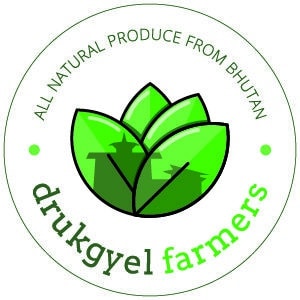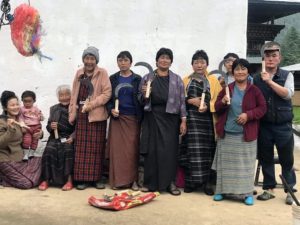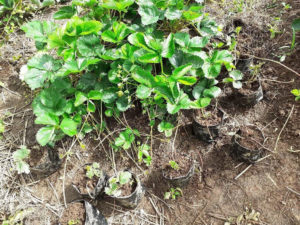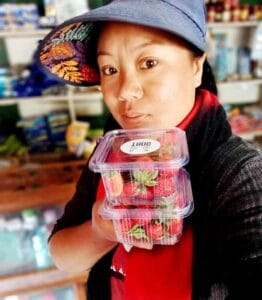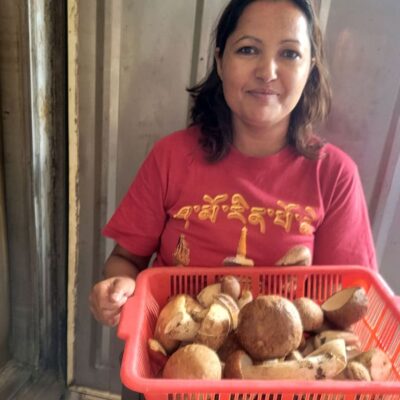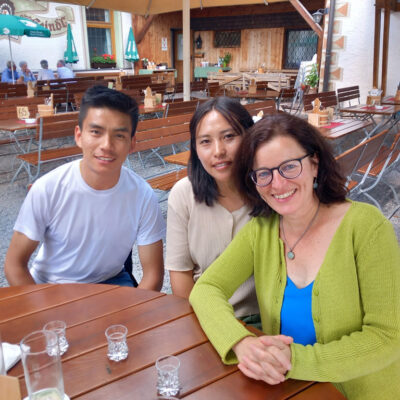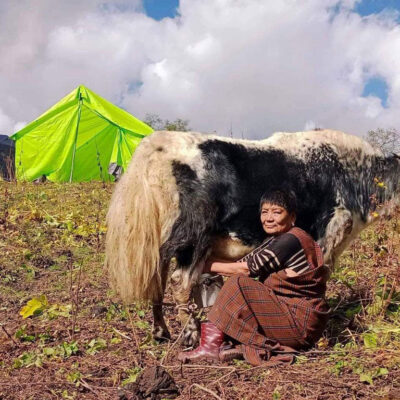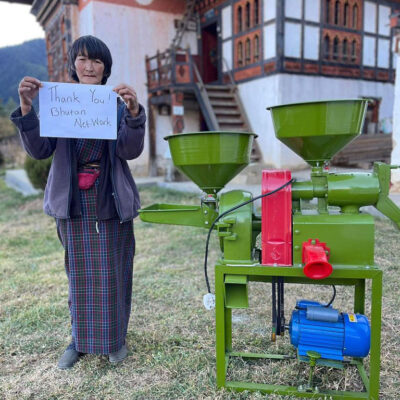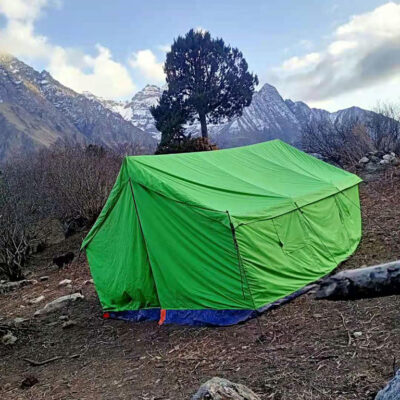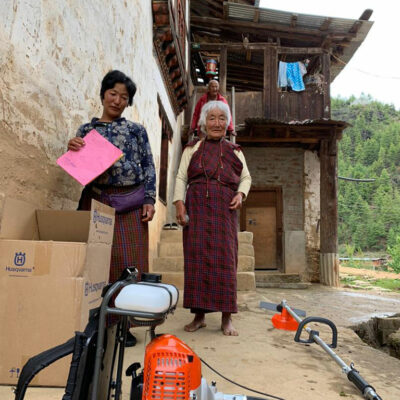This post is also available in: Deutsch (German)
Young farmer Dorji Biidha from Drukgyel Farmers has many stories to tell. This time she shares her thoughts on how Bhutan Network, albeit a small association, has a positive impact on her village and other farming communities.
My thoughts on Bhutan Network’s efforts to curb rural-to-urban migration in Bhutan
Rural-to-urban migration and goongtong (“empty household”), is becoming common within our country. Towns and cities are getting more and more congested with an ever-increasing population, while rural areas are left almost empty, only the older and weaker people remaining there. This results in labor shortages and slow development in rural areas, exacerbating the problem.
Keeping youth in the villages
Young farmers like me in Phongdo village are fortunate to get support from Bhutan Network. This association not only helps us financially, but also encourages us to consider new ideas. Upon my request, Aum Pem (aka Ulli) recently facilitated to buy sickles and a rice-husking machine for our village; the combined cost of these tools is worth more than our usual annual income.
Moreover, this lack of agricultural equipment contributes to the youth leaving our village. Prior to receiving the rice husker, to hull rice we had to travel many kilometers, over difficult terrain, to other villages where they already have a husker – yet some villages have little if any road connections or the vehicles needed to travel between them. Now with the help of Bhutan Network, we can hull our own rice on our doorstep. Life has become easier and we feel more positive about living and making our livelihoods here in the village.
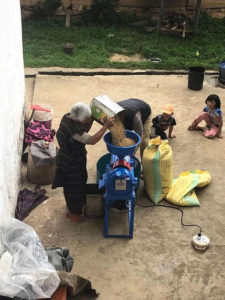 Also when the coronavirus pandemic hit the Bhutanese tourism industry, Bhutan Network immediately arranged funding for a chainsaw, so that farmers in Phongdo could concentrate on furniture building and so make an alternative living out of that.
Also when the coronavirus pandemic hit the Bhutanese tourism industry, Bhutan Network immediately arranged funding for a chainsaw, so that farmers in Phongdo could concentrate on furniture building and so make an alternative living out of that.
New ideas and practical input
Many of the Bhutan Network-sponsored activities and actions are aimed at curbing rural-to-urban migration. For example, they have helped provide greenhouses, enhancing our capacity to grow green vegetables during the winter season, enabling villagers to have a healthier diet.
Furthermore through the Network and Aum Pem we have received help and support to develop farming knowledge; they have provided theoretical and practical input as well as other essential services, including practical and online workshops and the chance to meet colleagues in Austria through the Organic Farming Exchange Programme (OFEP).
Another strategy promoted by Bhutan Network is to increase productivity through the use of high-yield seeds. For example, Bhutan Network USA encouraged us to take a free online class, where we learned how to preserve seeds so that we don’t have to spend so much money buying new ones for next year. In addition, Bhutan Network has taught us how to make jam from strawberries and unripe discarded plums, peaches and apples, turning what was once for us a waste product into something edible and potentially profit-making.
Ongmo’s strawberry farm in Tang
Bhutan Network is a small association but with their help some groups of farmers now enjoy knowledge and technical advancements that would simply not have been possible without Aum Pem and the Network’s support. Not only that, we – a combination of school dropouts, graduates and unemployed youth – are thankful for the appreciation and help offered to those willing to take up a life as farmers.



